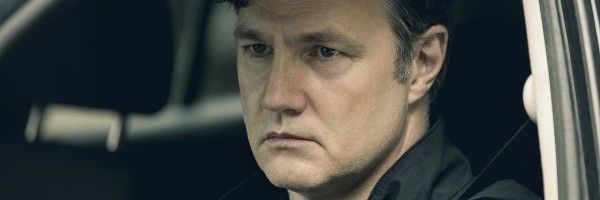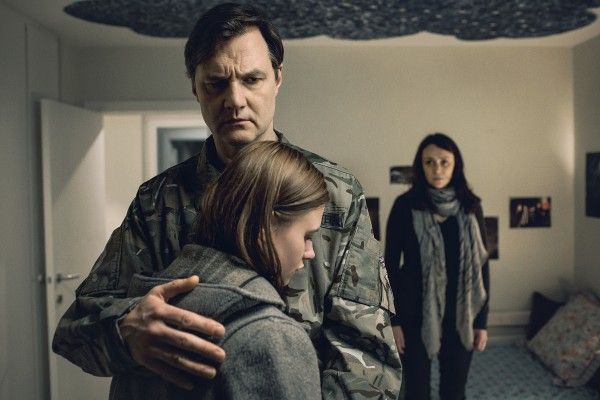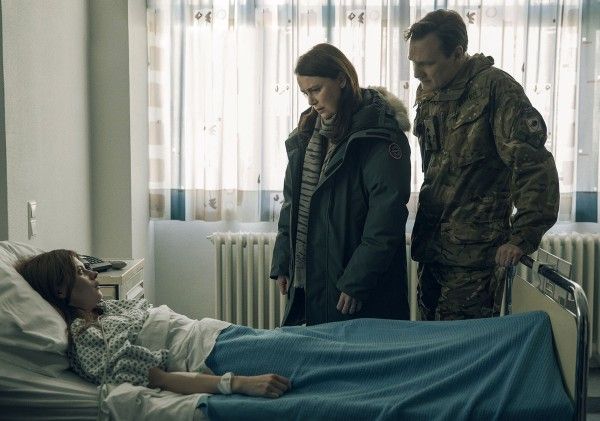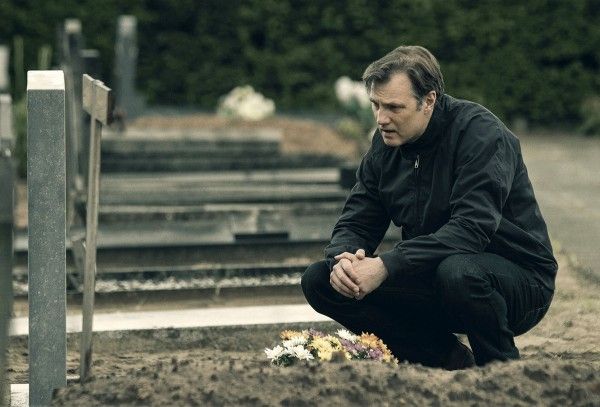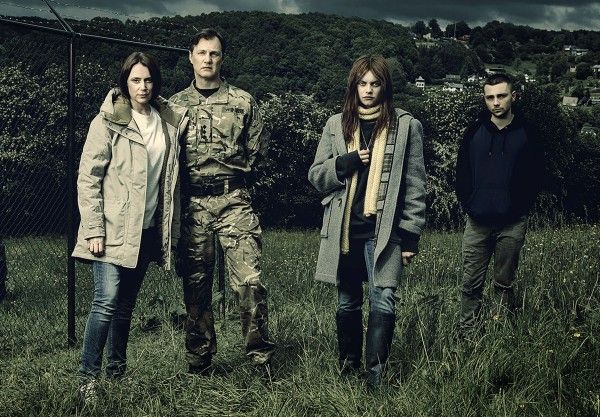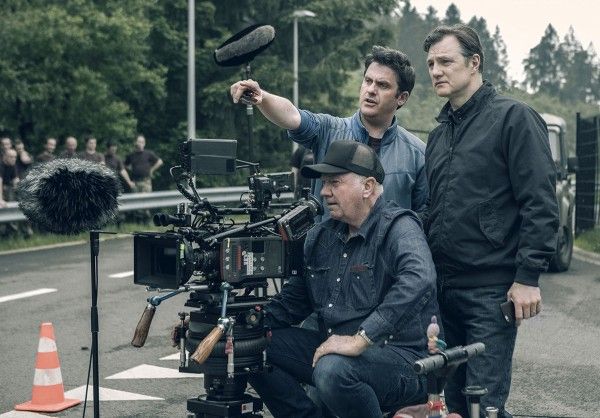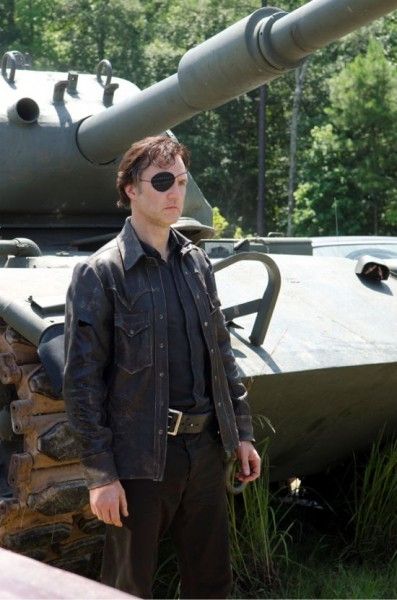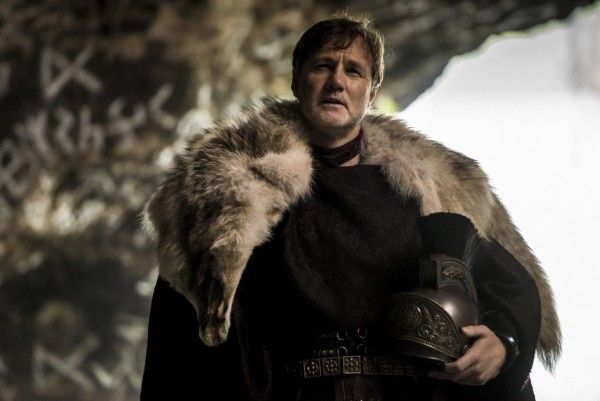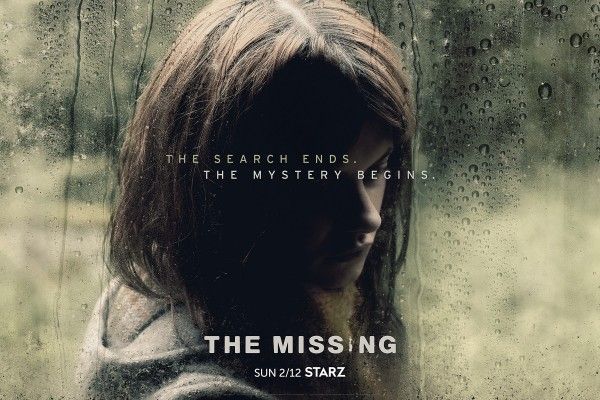In Season 2 of the Starz drama series The Missing, a young woman who has been missing for 11 years suddenly returns to her hometown. Once she’s back at home with her parents (David Morrissey, Keeley Hawes), Alice Webster (Abigail Hardingham) throws her family’s lives back into a turmoil that threatens to tear them apart, while French detective Julien Baptiste (Tchéky Karyo) wants answers from her that will help him in finally solving a connected 12-year-old case.
During this 1-on-1 phone interview with Collider, actor David Morrissey talked about being a fan of the first season, what made him want to be a part of Season 2, the emotionally grueling shoot, the uncomfortable process of applying and removing the character’s scars, the research he did for the role, shooting different timelines, and getting viewer reactions while the series aired in the U.K. He also talked about what it means to him to have gotten to play The Governor on The Walking Dead, his upcoming Amazon Prime series Britannia, and spending some time on the West End doing Shakespeare.
Collider: I loved the first season of The Missing, so I was concerned about what Season 2 would be like. I was glad to learn that not only would it be a different case, but it would also be about someone returning from being missing and how challenging that is to deal with. How did you get involved with this show, and had you been familiar with the first season?
DAVID MORRISSEY: Yeah, I came as a fan of the first season. I really loved it. Jimmy Nesbitt is a friend of mine. I’ve worked with him in the past, so I always really enjoy watching his stuff. I watched it and was intrigued by the multi-timelines. The way it was directed, the first season, by Tom Shankland was just amazing. I loved it. I thought it was great. So, when they said that they were doing it again and that they were bringing the French detective back, but that it was a completely different story, I was interested. And then, I met with the writers and they shared their idea that it was about somebody who’d gone missing, but then returned back to a family, and how they’d deal with the return of their daughter, as opposed to the abduction of their daughter, and how the abduction of their daughter had kept the family together. The mother, father and son had stayed together and were still a loving unit. And then, the return of their daughter, which was all they ever wanted, acts as a wedge between the husband and wife, and it drives the family apart, for various reasons. And there were the multi-timelines, telling it mostly in 2014, when the daughter returns to the family, but also having this whole section of present-day. My character, Sam, is emotionally scarred, for sure, but he’s also physically scarred. He has these burns all over his face and his back, and we don’t really know how that’s happened. You’re constantly playing detective, yourself, as the audience.
How long did it take to apply the make-up, how uncomfortable was that, and how much did that help you define who this man is?
MORRISSEY: When we started, it took about two hours, but we ended up getting it down to about an hour and a half. Taking it off was the problem. It always took an hour and a half to take it off. It was a very slow process. And then, I’d get in my car – and we were usually far away from where I was staying – and I’d stick to the seat. Then, I’d get to the hotel room and I’d have to peel off my shirt because it stuck to my back with the glue. That was pretty horrible. You’d wake up in the morning and get up, and your pillow would come with you. So, it was very uncomfortable, but it really did help me stay in the character. It was restrictive and awkward, and you were always conscious of it. That was important, I felt.
Was this show as emotionally grueling to shoot, as it seems like it would have been?
MORRISSEY: Obviously, at the end of the day, we, as actors, are able to get together, have some fun and let our hair down. But during the day and the time it takes to actually shoot the show, there’s not a lot of levity around, at all. You’re really in that emotion and you just carry it with you. It does take its toll. It really does. It’s very draining, at times, because it’s such an emotional journey.
When it came to how you wanted to delve into this story and what it must be like to go through something like this, what did you do to gain an understanding of what that might be like? Did you intentionally try to steer clear of imagining what it would be like if this happened to you, in your own family?
MORRISSEY: Yes, it was specific to this family. I felt that this man was very different from me, and I had to get inside his head and his world. He’s a soldier. He’s probably been in the Army since he was 16. The Army has been his family and done everything for him. He’s very different from me. I didn’t meet anybody to whom this had happened. What I did was read a lot of testimony. Unfortunately, the books and testimony of people I’d read were of people whose children were still missing. There’s not a lot out there from parents whose children have been abducted for a long time, and then come back into their lives. There’s not a lot of documentation about that. So, what I read was, more or less, what they went through, as a parent, when their child was abducted. That’s documented. There’s a lot of stuff around about that, and it’s very harrowing stuff. It’s also important to say that it’s a very rare occurrence. It makes great drama, but it’s not something that I feel we need to live in fear of this happening to our children. We need to make sure that our children are streetwise and aware, but it’s a very rare occurrence that this happens.
When you signed on for this, did you know that you’d be shooting all of the 2014 stuff first, and then doing the present-day stuff, or did you find that out, later on?
MORRISSEY: That was my first question. I asked about that and said, “Is it going to be as linear as possible?” And they said yes. Our house gets redecorated, and they couldn’t give redoing that, so we filmed all of the 2014 stuff first. We had about a two-week break while Tchéky [Karyo] had his hair cut and other people had different looks done, and they painted the sets. And then, we went back and did the present-day stuff. That was very helpful, to have that definite time frame laid out for you.
When this woman comes back into this couple’s life, telling this family that she’s the daughter they thought they’d lost, it brings up a lot of old feelings and guilt. What do you think Sam is most guilty about, when it comes to what happened to his daughter?
MORRISSEY: The thing is that any parent would feel that their job is to protect their children. This man, in particular, because he is a soldier, is an action man. He’s given a problem and he goes off and does it. He’s been in war zones. He’s a very well-respected soldier. He’s done his time, and he’s lost friends and colleagues. For him to not be able to protect his own daughter brings up a lot of guilt and a lot of shame, and that reflects on him. Even if friends and colleagues say, “This isn’t your fault,” he would feel it was his fault and he would carry it at the very core of himself. So, when this girl comes back into his life and it’s his daughter, he absolutely has no question about it because it means that he can wipe the slate clean and start again. It means he can start protecting her again and being a father again, and assuage all of his guilt and shame around her. That’s really important for him, and it slightly blinds him towards other things. His need to get back to square one of his life is a very human need. I felt very loving towards him because of that. He’s been emasculated by what’s happened to him. For any man, that’s a terrible thing, but for this man and this soldier to be emasculated takes him into a tailspin. And then, it starts to happen again and he just can’t handle it a second time. He’s used everything in his power to get him through the past 11 years, but when it happens to him again, he has to kick out at the world and blame people. He goes to a very dark place.
The father of this family is determined to have a second chance with his daughter while the mother is suspicious. How much tension will that create between them, and with this woman?
MORRISSEY: When something happens like this, every second of the 11 years that she was away, they must have wondered where she was, what happened to her, and whether she’d come back. There’s no closure for them. So, when she does come back, he’s so desperate for that closure. He’s so desperate to keep ahold of her and protect her, but the mother is in a force field that’s different. She’s questioning and her antennae is more alive, and he just doesn’t want to go there. He can’t bring himself to be in that doubting situation. The one thing he can’t have is doubt. Because he’s lived through 11 years with doubt, for somebody to not want to live without doubt any longer is a very human condition.
I can’t imagine what it must be like for a father to sit there and listen to his daughter talk about what her kidnapper did to her. Did that feel like a really defining scene for your character?
MORRISSEY: Yeah, he just can’t handle that. There’s something completely bottled up inside of him and he doesn’t know what to do with it, so he goes into the toilet cubicle and starts smashing the wall to get rid of that anger. There’s also another scene which I thought was really pivotal, when they’re all having a meal together and the daughter starts to talk about a happy memory that she had with this guy. That is a really interesting scene, where the mother attacks her for sharing something that’s good with this man, and I’m trying to close it down. I say, “Look, don’t push this. Leave her.” I think that’s a very interesting dynamic. They don’t want to hear what happened to this girl. They really don’t want to hear anything good about this other man. There’s something about that scene that is even more of an affront to the mother than the terrible stuff that’s happened to her. She can’t handle hearing that this girl might have had a nice time with him, or liked him, or had a relationship with this man. She’s completely affronted by that. Whereas when the daughter is talking about the things that happened to her and the rape, and stuff like that, the mother is full of sympathy. I thought that was a really interesting scene about human emotion and how it’s shared.
You’ve said that when the show aired in the UK, a lot of people would approach you with theories and post their theories on Twitter. Did any of them get close, or correctly guess what was coming next?
MORRISSEY: Yeah, some people sort of had suspicions around what was true, but other people had amazing scenarios, which were not ours, but equally as brilliant. I’m sure the writers have made notes of those theories and might put them into a third season, if they ever make one. I think the joy of the show is that it’s a puzzle. It’s a great thriller, and you play detective. You’re drip feed clues, all the time, so you come up with stuff yourself. Friends of mine who watched this, as a family, would all have different theories and they’d discuss it, in that way of, “What do you think about him?” I think that is really great. It’s great to have that sort of interaction, and people on the street really did. Each week, new information would come up and they’d be so excited about what was going to happen next. And they didn’t want me to tell them, so that was great.
You’d worked in this business for a long time, prior to doing The Walking Dead, and yet people will probably always associate you with that show and The Governor. How do you feel about that, and what did that experience and role mean to you?
MORRISSEY: I’m very proud of it. I’m very proud of being associated with The Walking Dead. It’s a show I loved doing. It’s made by people I adore. Greg Nicotero and Scott Gimple are really great people, and they’re very talented and wonderful writers, directors and creators. I’m very proud of it. Friends of mine, like Andrew Lincoln and Lennie James, are still on the show. It’s wonderful. Much more in the U.S., people know me as The Governor and they know me from that show. It’s less so in the U.K. In the U.K., people know me from my body of work, which is a little bit different. I’m very proud of it. I wear The Governor badge very proudly, all the time. I think it’s a great show to be associated with.
Did you get a lot of funny responses from people freaking out about what a horrendous villain The Governor was?
MORRISSEY: Yeah, people would come up to me and say, “I love to hate you!” And people have my face tattooed on their body, which is quite weird. It’s a show that incites passion in the fans, and I love that. The great thing about something like Twitter is that I can interact with the fans, and that’s wonderful. It’s great to be able to talk to them directly about what they’re thinking about the show and the character. I love that. Long may it continue.
The Missing is going to be available either to binge-watch or to watch on a weekly basis, depending on your preference. When it comes to watching TV, for you, are you a binge-watcher, or do you prefer to savor episodes?
MORRISSEY: It’s not a choice, really. For me, time is never on my side. I tend to not binge-watch. I might watch two episodes with my wife, or on my own somewhere. And if I’m traveling, I might watch a couple of episodes. More often than not, I tend to watch episodically because my time is such that I just don’t have time to watch that much stuff, over eight hours. Also, my real passion is reading. I love to read. I often think sometimes when I’m watching television, “I should be reading.” I’m going to leave here and go to Australia, so I’ve got quite a few long haul flights. I tend to put a lot of books on my iPad, rather than TV shows, but I do watch them, as well. I like the collective experience of watching the long-form television show, so I’ll sit down with my wife and we’ll watch The Crown, or something like that.
Our TV Editor was curious and wanted me to ask you if the Liverpool flourishes were your idea, since you’re a fan, or were those someone else’s idea?
MORRISSEY: They were mine. Yeah, I did that. I got a lot of tweeting and feedback from that. That’s my club. That was a little thing I just dripped in.
Do you know what you’re going to be working on next?
MORRISSEY: I just wrapped on a show for Amazon Prime, called Britannia. That’s a big Roman epic that comes out at the end of this year, I think in October. I’ve been doing that, and that’s been pretty full on. I’m really looking forward to that coming out. I got to do lots of riding, and we filmed in the Czech Republic, which is a wonderful place to be. I had such fun on that show. And then, back in the U.K., I’m hoping to do the play Julius Caesar in the West End. So, I’ve got a bit of Shakespeare coming up. It’s a pretty busy time for me.
When do you start working on the play and how long will you do that for?
MORRISSEY: I think I’m going to start the run in the beginning of the summer, and then go through to the end of the year, rehearsing and performing that. It’s in a new theater called The Bridge, which is on the South Bank, just by The National Theatre in London.
The Missing airs at 8pm ET/PT on Sunday nights on Starz, or the full season is available to stream.

